Rachel Held Evans's Blog, page 39
June 9, 2013
Sunday Superlatives 6/9/2013
Thank you for all the kind birthday wishes yesterday! We drove 40 minutes to the nearest Sweet Frog because all I wanted for my 32nd birthday was some froyo. (I’ve recently developed something of an addiction.) Superlative for best flavor combo goes to pomegranate yogurt topped with chocolate chips, Oreo crumbs, and chocolate animal crackers. Try it.

Now, on to superlatives…
Around the Blogosphere...Most Inspiring:
“Give ‘Em Heaven”
Fourteen-year-old Larissa Heatley, Dallas Willard’s only granddaughter, delivered a personal tribute at his memorial service. (See video above)
Most Powerful:
Jamie The Very Worst Missionary with “Where’s the Sanctuary?”
“She told me she didn't know why she was there, she'd never stepped foot in a church before, she didn't know where else to go. She was lost, she said. Tears began to well in her dazed eyes, and the purpose of her visit came with them. “I got hammered last night... and I f*cked my husband's best friend.” Those terrible words were holding in so much, and that's all it took for the flood gates to open and a tormented soul to pour out on the floor, right there in front of me. She cried. I cried. We cried... together... which sounds kinda weird, but it wasn't.”
Most Relatable:
Katie Noah Gibson (at Micha Boyett’s place) with “With All Kinds of Doubts”
“I really and truly believe in God with all kinds of doubts,” Madeleine told Una. And from a distance of forty years and several hundred miles, I say: Me, too, Madeleine. Me, too.”
Most Fascinating:
“What wine would Jesus drink? (A new book tells you)”
“Joel and I were also fascinated by just how important of a commodity wine was in the ancient world. We discovered that by the Roman age, people on average drank 100 gallons of wine a year. The biblical writers mention wine over 235 times and it was one of the largest economic sources in the ancient Near East and Mediterranean culture. Hence, vineyards were one of the first things destroyed in war because the destruction of the wine industry crippled the economy.”
Most Thoughtful:
Rachel Marie Stone with “Modesty All Over the Map”
“Whatever one thinks of the evangelical modesty movement—and the growing back-and-forth debates online—we must recognize this cultural context for how we perceive what's appropriate. A fixation on our own definition of modesty threatens to warp our perceptions and hurt our interactions with others—particularly as we venture outside our own culture.”
Most Challenging:
Anne Marie Miller with “The Unexpected Face of Mercy”
“To say I floundered in self-pity is an understatement. After a particularly frustrating evening, a friend sat with me in my pile of bills and confusion and tears. With a defeated voice, I told her I wondered where God’s grace was in everything I was experiencing. I wanted respite in every imaginable way and thought God was holding back His mercy from me. In hindsight, that simple correlation was my problem. I equated mercy with relief. In her wisdom, my friend asked me one simple question: “Do you want relief? Or do you want to be whole?”
Most Prophetic (nominated by Kelley Nikondeha and Micah J. Murray)
Brian Zahnd with “When America Went to Hell”
“If we console ourselves with the promise of heaven in the afterlife while creating hell in this present life, we have embraced the tawdry religion of the crusader and forsaken the true faith of our Savior.”
Most Honest:
Preston Yancey with "When I have made altars of sand in want of stone"
"Preston, if you believe that what comes after repentance of sins is the work of the kingdom, the kingdom of God that has no end, then leave the words when the last period falls and go and do. Do not only talk about the marginalised, go to them. Do not only deplore the darkness, walk the flicker of your light into its midst."
Most Likely To Make You Consider Scuba Lessons:
“Lost Egyptian City Revealed After 1,200 Years Under the Sea”
Most Likely To Make You Feel Less Guilty About Curling Up on the Couch This Afternoon With a Novel:
Enuma Okoro with “Read, Write, Worship”
“Reading can create an intangible sanctuary where all are invited, regardless of faith, to receive benedictions that send us back into our respective broken worlds with more courage, strength, and hope. Reading can be an invitation to turn, face God, and live.”
Best Conversation:
Peter Enns with “5 Main Challenges to Staying Christian and Moving Forward Anyway” – Part 1 & Part 2
"My intention for writing the post was not to undermine faith nor to set up issues for which I could give pat answers. I simply wanted to give people the space to express themselves in a spirit of trust and group support for the ultimate purpose of encouraging a continued walk of faith, however that might be configured in each person’s experience, community, or theological tradition. To utter one’s deepest fears about their faith is for some only slightly less risky that buying heroin on a street corner, and such fear is too common a phenomenon in the various iterations of conservative Protestantism, i.e., for traditions rooted in the importance of detailed and absolute knowledge on a wide range of topics. For a variety of reasons, these “systems” are not viable for a considerable element of the Christian population. It is what it is. And, like any conflict–internal or otherwise–talking about it unloads a burden, a first step to at least getting some perspective."
Best Interview:
Krish Kandiah interviews our friend N.T. Wright about the meaning of the Gospel
INTERVIEW WITH NT WRIGHT from Evangelical Alliance on Vimeo.
Best Idea:
David Henson with “The Patron Saint of Poop: How My Kids Fell in Love with the Saints”
“But, every now and then, something special happened, and my children asked questions about the saints and their work. We talked about racism and slavery in the United States when we remembered Absalom Jones and later Frederick Douglass. We talked about how sometimes people are killed for what they believe and for standing up for the poor and the oppressed when we remembered Polycarp. We talked about standing up for oneself and for others, even when the powerful disagree with you, when we remembered Martin Luther. We talked about poets, and teachers, and priests, and prophets modern and ancient. We talked about the women and men who lived holy lives. We learned about Christianity together, not through repetition of doctrine or theology or Christology but through seeing it in practice by people like us, our brothers and sisters in faith from all over the world.”
Best Insight:
Richard Beck with “The Little Way and New Legalism”
“What is needed, in my estimation, isn't a generic call to ‘faithful presence’--be nice and a hard worker wherever you are--but a way to get the radicalness of something like the Sermon on the Mount infused into ‘everyday ordinary living.’ And that, I would argue, is the genius of St. Thérèse."
Best Reminder:
Kathy Escobar with “Everyone’s Fighting Some Kind of Battle”
“God, give us eyes to see beyond what’s on the surface. give us ears to listen beyond what we hear. help us learn to live without assuming, without judging. give us hearts filled with compassion because of our shared humanity, our shared experience, our shared trying-to-make-it-through-the-day-as-best-we-can-despite-the-obstacles, our shared desire to be known and loved and accepted not for what’s on the outside but for what’s on the inside, too. no less-than, no better-than.”
Boldest:
Mary DeMuth with “When the Church Prefers Perpetrators”
“The church does far better when it acknowledges its sin, living fearlessly and honestly, than when it prefers to show a pretty, unadulterated face to the world. Unfortunately, we have become so enamored with the ministries we have built, forgetting that God Himself builds His church (and thinking it weighs on our shoulders), that we have lived in depraved fear, preferring the words of perpetrators over the words of those abused. We wrongly believe that we are in the business of reputation management.”
Wisest:
Nadia Bolz-Weber with “The Authority of Apology”
“People still want leaders and they are even willing to hand them the authority to preach and teach – they just don’t want any curtains to look behind. The people I know want leaders who, when they screw up, can be the first to admit it and to then ask for forgiveness. I try as a leader in the church to be transparent about my shortcomings and seriously, my parishioners love that their preacher is never the best Christian in the room, it kind of takes the pressure off, you know? Pastors used to be the one who were the shining example of perfect piety but now I think people are hungry for leaders who are consistently the same person in every situation they are encountered in. Clergy who don’t have their pastor personality and their regular personality. In other words, I think people are ready for spiritual leaders who don’t lie to them or pretend to be someone other than who they are.”
Saddest:
“Young-earthism cost her faith”
“Discovering that so many apologists for young-earth creationism (including the writers of my Christian textbooks) actually appeared to have misrepresented evolutionary theory and the evidence for it in a way that I can only describe as dishonest (whether they intended to be or not), and discovering that many of them also lacked the credentials to speak authoritatively on the topic in the first place, made up a major link in a chain of things I discovered that resulted in me “losing my faith,” as it were.”
Best Questions:
Bo Sanders with “Privilege is Not Racism, Sexism, or Oppression: A Proposal”
“I would like to see us move away from either-or options based on limited binaries and make a move toward multiplicity that more accurately reflects the complexity of the situation. This would be done by first adding a third category – then and here is the big one – by distinguishing within each of those at least 2 postures: active and passive.”
Best Reflection:
Joel Miller with “The secret behind the Bible’s most highlighted verse”
“Read instead as the ancient Christians read it, Paul’s statement is not merely that we should take our anxieties to God, good as that may be. It’s that the judge of the universe is near so we can have confidence that wrong will be set right. It’s not about trying to suppress our worries and trust God, which is for many a necessary but challenging effort that contains within it many of its own worries. That’s the wrong focus. It’s about the realization that God will soon wipe away every reason for worry. It’s a reminder of our real hope.”On the Blog…
Most Popular Post:
“Christians & Masturbation: 7 Perspectives”
Most Popular Comment:
In response to the post on masturbation, Hope made an excellent point:
What a great assortment of perspectives! One thing that has not been addressed here, though, (nor has been addressed in any discussion on the topic I have heard) is masturbation as a basic physiological function without any moral implications. Here is what I mean:
For as long as I can remember, I have been able to masturbate. I do not remember a time in my life when I could not get "those tingly feelings," though around the age of 4 or 5 I finally figured out I should not do it in front of anyone. I was 8 or 9 before I had a name for it (thanks to a crude bumper sticker about a "master baiter" that instigated a family discussion). Even then, though, I had no idea what it was. I was probably 11 or 12 before I started thinking, "Maybe this has something to do with sex." So when people question ask if masturbation can be decoupled from pornography or lustful thoughts, my answer is that was my experience for years, even into my teenage years. Yes, it is totally possible.
As a child, I wasn't longing for relationship. I wasn't trying to control a sexual appetite. I wasn't filling a void that only God could fill. It just felt nice. That's it. I remember feeling some level of shame about it, but I think it was more because I didn't understand what it was; I just knew I was supposed to hide it.
Maybe my experience is extremely rare (I haven't really asked around about it, you know). When I got married, I had no difficulty stopping (it seemed redundant at that point), but I definitely feel like this self-knowledge has enabled my husband and me to develop a mutually satisfying sexual relationship more quickly (though it certainly isn't perfect).
This information might not be helpful to anyone else, but I have just never heard someone say "Well, sometimes masturbation is just a natural bodily function." I absolutely agree that, like anything, natural or unnatural, it can be used for sin or for God's glory. In my reflection, though, I genuinely believe that my childhood masturbation was morally neutral, and I've never heard anyone acknowledge that possibility.So, what caught your eye online this week? What's happening on your blog?



June 7, 2013
FAQ Friday (Video) - Advice for Couples on Mutuality?
Today is the first entry in a video series I'll be doing to respond to some of your frequently asked questions. When I solicited questions last week, this one from Morgan was the most popular, so I thought we'd start there.
Morgan: Did you and Dan ever have a formal conversation about "mutuality" and equal partnership or did it just come naturally? I am getting married in July and my fiance and I both grew up under a heavily complementarian model for marriage. We started dating freshman year of college and 5 years later will be marrying with a much more evolved view of marriage and scripture than we had when we started dating. We talk about marital roles occasionally and we agree that our gender is not the dtermining factor in who "leads" and who "helps." His perspective, however, is more conservative and my perspective is more liberal. What advice would you give for couples who are dating, engaged, or even already married for discussing mutuality/gender roles in marriage?
Here's my response:
As a side note, we will be discussing those "submission" passages in much more depth in the weeks to come with a four-part series on the topic. In the meantime, if you are interested in learning more about mutuality in marriage and in church leadership, check out these posts from our Mutuality 2012 series:
Week of Mutuality: How it will work, definition of terms
Let’s start at the beginning, shall we? (Genesis 1-3)
4 Common Misconceptions About Egalitarianism
Submission in Context: Christ and the Greco-Roman Household Codes
Dan on roles, leadership, and supporting your partner (Dan Evans)
Who’s Who Among Biblical Women Leaders
For the Sake of the Gospel, Let Women Speak (1 Timothy 2:11-15)
Ask an Egalitarian...(Mimi Haddad)
Is patriarchy really God’s dream for the world?
When Men and Women Ministered Together as Equals (Ed Cyzewski)
Women of Valor: It’s About Character, Not Roles (Proverbs 31, Ruth)
So, what advice would you give Morgan and her fiance?



June 6, 2013
Why the Church can support “breadwinning” wives too

Last week, a Pew study revealed that in four out of ten American households with children, the mother is the sole or primary breadwinner for the family, the highest share on record. News of the study resulted in some controversy after a heated exchange between Fox News anchor Megyn Kelly and members of an all-male on-air panel on the subject sparked strong responses across media outlets.
For those of us who grew up in certain sectors of the American church, the controversy is not surprising or new. Perhaps you too remember James Dobson taking to the airwaves to tell men that it is their divine responsibility to provide and women that it is their divine responsibility to nurture (as though the two are mutually exclusive). Some Christians continue to characterize fathers who share parenting responsibilities or stay at home with their children as “man fails” and “worse than unbelievers,” instructing women to intentionally avoid earning more money than their husbands, even if it is less practical for their family to do so, or else they will injure their spouse’s ego.
There are a few reasons why these legalistic approaches to gender roles are unnecessary impositions on Christian families and those seeking to participate in the life of the Church and why, without diminishing the importance and value of homemaking or childcare, we should not “shut the door to the kingdom” to families based on their socioeconomic status, unique callings and gifts, household structure, or earning arrangements.
First, the household structure of a “breadwinning” father and a “homemaking” mother is a cultural phenomenon, not a biblical one.
Again, this is not to say that such an arrangement is less valuable than others; it just means we have to be careful of idealizing or idolizing it.
The single-earner nuclear family as depicted in "Leave it to Beaver" and "Father Knows Best" is a relatively recent development, a byproduct of post-industrial revolution American culture. Other cultures, both past and present, produce different family and financial arrangements. In more agrarian cultures, for example, women must be skilled in a variety of occupations and may share manual labor and earning power with their spouses. As cultures and circumstances change, roles tend to change along with them—both at the societal level and the individual level. And as we see in Scripture, God can be glorified and honored in a variety of cultures and families, from the nomadic lifestyle of Abraham and Sarah to the shared tent making work of Priscilla and Aquilla. Zippora and Rachel were shepherdesses. Lydia was a wealthy tradeswoman. Deborah was a judge and military commander. Even the poetic Proverbs 31 Woman, so often cited as the model for homemaking, has a thriving business and uses her own earnings to invest in real estate.
So there is no single “biblical” model for arranging household income. Instead, families will look different from culture to culture and family to family. (And the people described as "worse than unbelievers" in the instructions from 1 Timothy 5 were relatives of widows who were shirking their responsibilities by exploiting the church's provisions for widows. The verse does not refer to stay-at-home dads.) Furthermore, as more and more young adults delay marriage until their late twenties or early thirties, the Church has the opportunity to reclaim its once high esteem for singleness and the contribution of singles—including single parents— to the Kingdom. Becoming men and women of valor isn’t about sticking to a list of rules and roles; it’s about loving God and loving our neighbors well, no matter our circumstances. We can do that in a variety of roles. And that's good news.
Second, and perhaps most importantly, the option of having a single “breadwinner” in the home is available only the relatively privileged.Current minimum wage in the U.S. is just $7.25. Not many families can live on the income produced by a single minimum-wage earner. In many developing countries, wages are much less, and as journalists Nicholas Kristof and Sheryl WuDunn have noted in their widely-acclaimed book Half the Sky, the empowerment and employment of women can have a direct and profound effect in curbing poverty, infant mortality, maternal mortality, and violence. So why on earth would we discourage women in those situations from working?
I've said it before, and I'll say it till I’m blue in the face: if our theology doesn’t work on the ground, among the poor and the marginalized to whom Jesus first brought the gospel (Luke 4), then it doesn’t work. (See “Jesus Started with the ‘Outliers’”). It is inexcusable for pastors to take to their pulpits to demean families who are sharing the workload, sometimes barely making ends meet, and label them “failures.” This is exactly what Jesus was talking about when he criticized the religious leaders for “tying up heavy burdens” and placing them on people’s backs. For a large percentage of the world’s population, turning their families into the Cleavers is simply not an option, so we would be doing harm to the Kingdom to require it.
Liuan Huska wrote an excellent piece for Her.Meneutics about how her Spanish-speaking immigrant church treats childcare as a community calling, especially considering the fact that many of the mothers and fathers in that community are working hard just to make ends meet. It’s an inspiring and encouraging story—a beautiful picture of what it means to be part of a church family.
These families should be treated with the same respect and dignity as those in which the father is the single breadwinner; they are no less "biblical" than the suburban nuclear family. They are a beautiful part of the Kingdom.
If the gospel we’re preaching isn’t good news for the poor; it’s not the gospel.
Third, the suggestion that men cannot handle having partners who out-earn them is emasculating, as is the suggestion that they are incapable of sharing the responsibilities of parenting.This is the side of patriarchy that doesn’t get talked about a lot: the way it narrowly defines men as well as women.
When I told Dan about some of what has been said on the blogosphere about men who earn less than their wives, he laughed, rolled his eyes a little and said, “It’s not emasculating to have a successful wife. What’s emasculating is when someone tells me my frail ego can’t handle it. Our marriage isn’t a competition; it’s a partnership.”
Furthermore, while earning money and contributing to a family’s financial needs can indeed be rewarding—for both men and women!—it is not the only way that a mother or father “provides.” Some fathers will provide by working part time and watching the kids in the afternoons. Others provide by caring for the kids full-time while their spouse goes to work. Some families trade off the responsibilities of earning and childcare, day to day, year to year, season to season; others tag-team it. And as Sean Palmer put it so well last week, “as long as the narrative continues which articulates that men lack what it takes to nurture and raise children, as long as some argue that the cultivation of children is the domain of women only, we will continue to produce dads who believe they risk their ‘man-card’ by trying.”
A man who spends most of his day reading storybooks, wiping noses, changing diapers, and driving kids to basketball practice is not a failure. Such work is not "beneath" him. Rather it is an embodiment of the very servant heart of Jesus and should be celebrated and honored as such.. Same goes for stay-at-home moms.
(See also "Ask a Stay-At-Home Dad")
Yesterday, I tweeted that "it bugs me when folks work off the assumption that men are threatened by the success of their wives. Many, like Dan, are buoyed by it.”
As it turns out, Dan is not alone.
Hundreds of men and women responded to the tweet with encouraging, affirming words about their spouses. I wish I could share them all, but I'll just have to share just a few:
@rachelheldevans While I make more money now, my wife earned the heavy load as I went through Seminary. I was always thankful, never jealous
— Timothy Brooks (@pastortimbrooks) June 4, 2013
@rachelheldevans My wife changes lives by helping ppl get access to healthcare. Smart, driven, amazing. Our boys (and I) admire her so much!
— Brent Huckaby (@brenthuckaby) June 4, 2013
@rachelheldevans My wife stays home with our three kids, all under 5. She exudes grace, mercy, and love. I learn so much from her every day.
— Collin Simula (@CollinSimula) June 4, 2013
@rachelheldevans my husband has always believed I'm exceptional. 1st in my career, then SAHM he's always told me no dream is too big.
— Steph (@stephlmacp) June 4, 2013
@rachelheldevans To be threatened by my wife's success would be a rejection of God's gifting and image in her.
— Nate Pyle (@NatePyle79) June 4, 2013
@rachelheldevans I celebrate my wife's success, and indeed wouldn't be able to pursue God's call on my life without it!
— Nick Walsh (@NickWalsh6) June 4, 2013
@rachelheldevans My wife teaches at the seminary we graduated from. That makes me proud of her, not threatened by her. I call her "Doc."
— Matt Mikalatos (@mattmikalatos) June 4, 2013
@rachelheldevans my husband is my biggest fan with regard to my being his wife, mama of our 2 kids and equally my job outside of the home.
— Casey Cockrum (@caseycockrum) June 4, 2013
@rachelheldevans My wife started a bow tie biz @cordialchurchmn in our spare rm., now employs 6 people. Taught me lots about church planting
— Andy Stager (@ARStager) June 4, 2013
@rachelheldevans I lessened my hours at work to help my wife in her business, now she's my boss and it brings me joy.
— Danny Gluch (@danandstephinsf) June 4, 2013
@rachelheldevans My wife-to-be @bedside_manners devotes her days, nights, & wknds to her calling as a doctor. So proud of her. #EshetChayil
— Rev. Eric Atcheson (@RevEricAtcheson) June 4, 2013
@rachelheldevans my husband's encouragement & belief in me is the reason I'm in seminary! He pushes me, names my gifts, & helps me succeed.
— Janette Platter (@janetteplatter) June 4, 2013
@rachelheldevans my wife @janietoypowell works is 8 months pregnant and still working as a hospital chaplain
— Chuck Powell (@Blest2BAwitness) June 4, 2013
@rachelheldevans My wife is an incredible mother, loving spouse, and a super-smart chemical engineer. Her skills blow me away every day.
— cbalmain (@cbalmain) June 4, 2013
.@rachelheldevans My wife is a lawyer doing incredible work defending the education rights of children in foster care. I'm inspired by her.
— Dave Sandell (@DaveSandell) June 4, 2013
@rachelheldevans My wife has always been our bread winner and is now finishing her DNP. So proud of her, and would be lost without her.
— Jeffrey A. Brady (@cadillacactor) June 4, 2013
What a joy to get a glimpse into these amazing partnerships! (Find me on Twitter to read the rest.)
To conclude, it’s worth repeating that welcoming and celebrating breadwinning moms in our faith communities need not diminish the important, sacred, and tough work of full-time homemaking. Christians, of all people, should be careful of equating earning power with success. Homemaking is a high calling indeed, and one the Church should work counter-culturally to celebrate.
….But it’s not the highest calling.
Our highest calling, as Christians, is to love God with all our hearts, souls, minds, and strengths, and to love our neighbors as ourselves. It’s to be a part of this upside-down Kingdom, to proclaim the good news to rich and poor alike that Christ has died, Christ has risen, and Christ will come again. And I believe, by the grace of God, we can do that from a corner office, a rocking chair, a classroom, a library, a factory floor, an emergency room, a pulpit, or a kitchen.
And that's good news.
###
So I think we’ve made the case for why we should welcome and celebrate a diversity of families into our faith communities, including those with “breadwinning” moms. Now the question is how to do this better.
A few thoughts come to my mind, but I’d like for you to take it from here so we can crowdsource this a bit. How can church communities better support, celebrate, and draw out the gifts of women who work outside of the home? Many church programs are designed around stay-at-home moms; what has worked in your community for including single women or women serving their families in a variety of roles?
I’ll add my own comments to yours below.



June 5, 2013
Ask N.T. Wright…
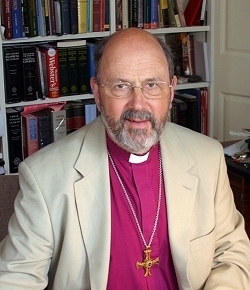
Today I am beyond thrilled to introduce one of today’s best known and respect New Testament scholars, N.T. Wright, as a guest in our ongoing interview series.
Wright is the author of over 100 books, including the popular Surprised by Hope and Simply Christian. His full-scale works—The New Testament and the People of God, Jesus and the Victory of God, and The Resurrection of the Son of God—are part of a projected six-volume series entitled Christian Origins and the Question of God. He is also the author of multiple articles, essays, and sermons, many of which you can access here. (Wright usually publishes as N.T. Wright when writing academic work, or Tom Wright when writing for a more popular readership.)
Wright was the Bishop of Durham in the Church of England from 2003 until his retirement in 2010. He is currently Research Professor of New Testament and Early Christianity at St. Mary’s College, University of St. Andrews in Scotland.
Like a lot of you, I’ve been hugely impacted by Wright’s work and am so grateful for the ways in which he has helped me love Scripture, and the Christ to whom it points, better. One thing I have always appreciated about him is his commitment to teaching God's people, not just the intellectual elite, but all who want to know and follow Jesus.
If you have a question for Wright, leave it in the comment section. Be sure to utilize the "like" feature so we can get a sense of what questions are of most interest to readers. After 24-hours, I'll pose the five most popular questions to Wright and then post his responses as soon as he sends them to me. (I can only choose five questions this time because this guy has, you know, a few volumes to write!)
Ask away!



June 4, 2013
“Give us this day” (some thoughts on structured prayer)
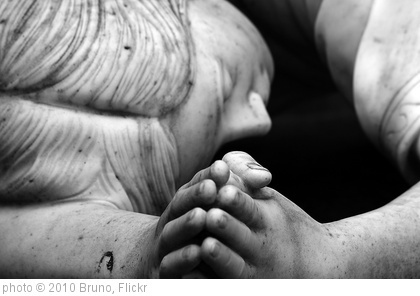
I am thankful to have grown up in a church tradition that emphasized the importance of nurturing a “personal relationship” with God. From an early age, I had a deep and active prayer life, comfortable shootin’ the breeze with Jesus about whatever was on my mind—my friends, my sins, my hopes, my questions, my fears, my obsession with that boy. Jesus heard it all.
But as precious and important as it was to march before the throne of grace with such confidence each day, my prayer life became much richer when I discovered structured prayer and incorporated it into my devotional practices.
By structured prayer I just mean prayers drawn from Scripture or written by other people, words that are not my own. These prayers have helped carry me beyond a merely personal relationship with God to one that is more communal. I found these prayers in the Psalms, in the Book of Common Prayer, from church history, through the Daily Office, and in the writings of other followers of Jesus from a variety of church traditions.
A single blog post could never do justice to the impact structured prayer has had on my life.
In times of profound sadness, the prayers of fellow travellers, often worked out over decades of trials and faithfulness, have put words to the aches I could not fully name.
As the deer pants for streams of water, so I long for you, O God.
In times of doubt, when I don’t feel like praying, my brothers and sisters provide the prayers for me.
Come, my Light, my Feast, my Strength!
Where my imagination is limited, prayers old and new bring fresh images and ideas to mind.
Dear Jesus, help us to spread Your fragrance everywhere we go. Flood our souls with Your spirit and life. Penetrate and possess our whole being, so utterly that our lives may only be a radiance of Yours…
When I am in need of higher thoughts and ambitions, I learn from what great Fathers and Mothers in the faith prayed.
I am no longer my own, but thine. Put me to what thou wilt, rank me with whom thou wilt. Put me to doing, put me to suffering. Let me be employed for thee or laid aside for thee, exalted for thee or brought low for thee. Let me be full, let me be empty. Let me have all things, let me have nothing. I freely and heartily yield all things to thy pleasure and disposal…Thou art mine, and I am Thine.
And just when I start to buy the lie that my schedule is the most sacred thing on the planet, I am interrupted by a reminder to stop, acknowledge the time, and read the appointed prayer for this appointed day on this appointed hour.
Lord God, almighty and everlasting Father, you have brought us in safety to the beginning of this day: Preserve in us your mighty power, that we may not fall into sin, nor be overcome by adversity; and in all we do, direct us to the fulfilling of your purposes; through Jesus Christ.
But most of all, structured prayer reminds me that faith isn’t just about me. These prayers, written down ahead of time, often first spoken long before my birth, remind me to turn my thoughts toward the people I love, to forgive and ask forgiveness, to pray for my enemies, to plead for mercy for “the things I have done and the things I have left undone,” to remember the hungry and the suffering, to “bless the congregation of the poor,” to worship, to thank, to intercede, and to join with the whole community of saints who—this very hour, all around the world, and for centuries past and to come—are praying these prayers with me today.
Glory be to the Father, and the Son, and the Holy Spirit. As it was in the beginning, is now And ever shall be, world without end. Amen.
It’s been nice sinking back into the habit of praying the Hours now that I'm home for a few months after a long season of travel. But even when I can’t, the one prayer I try conjure up at least once a day—no matter how depressed or doubt-riddled or frantic I may be—is the one Jesus taught his disciples to pray: the Lord’s Prayer.
Every day I am surprised by its simplicity.
Every day I am surprised by its depth.
Every day I am surprised by its holiness.
Every day I am surprised by its stubborn defiance to the individualism that creeps into my thoughts and prayers each day.
Our Father, Who art in heaven,
Hallowed by Thy Name.
Thy Kingdom come.
Thy will be done, on earth as it is in Heaven.
Give us this day our daily bread.
And forgive us our trespasses,
As we forgive those who trespass against us.
And lead us not into temptation,
But deliver us from evil.
Thy name. Thy kingdom. Thy will.
Our Father. Our daily bread. Our trespasses.
It can feel a bit strange praying this prayer outside of church, alone on my back porch in the morning or rushed and frustrated as I get ready for another busy day. But maybe that’s how it’s supposed to be. Maybe it’s supposed to jolt me out of the selfishness with which I would pray were it not for the guidance of these words.
I pray not only for my own bread, but for ours. I ask forgiveness not only for my own sins, but for our sins. I ask not merely for my own protection and guidance, but for the protection and guidance of the whole Church.
You can’t be a Christian alone. And this most basic and universal prayer of the faith, the one Jesus taught us to pray, reminds me every day that I’m never in this alone, even when I want to be.
###
If you’re interested in incorporating structured prayer into your devotional life, I recommend starting with The Book of Common Prayer, a Psalter, and Phyllis Tickle’s The Divine Hours (there is one for each season). You might also like Common Prayer: A Liturgy for Ordinary Radicals by our friends Shane Claiborne, Enuma Okoro, and Jonathan Wilson-Hartgrove. Lately I’ve also been enjoying the prayers found in A Book of Hours by Thomas Merton and the devotional readings and blessings written by Jan Richardson in In the Sanctuary of Women.
You can also find some beautiful prayers at Everyday Liturgy.



June 3, 2013
Christians & Masturbation: Seven Perspectives
When I first introduced our yearlong series on Sexuality & The Church, I polled you for your input and ideas, and the most popular suggestion came from a reader named Lucy who wrote:
“With sexuality (and with singleness) could you look at masturbation from a theological perspective? I think it is something that maybe teenage guys hear about all the time, but rarely even gets whispered about among women. And it's not that I think there would be different rules, but rather I need a theological framework in which to think about it, and no one wants to even begin talking. I'm single and in my 30s and my non-Christian friends think ‘contentment in singleness’ is a euphemism for something. Are they right?”
I wanted to get a diversity of perspectives in response to this question, so I contacted several folks whose opinion on matters related to sexuality I respect, and asked them this question:
Is masturbation an acceptable component to healthy sexuality for Christians?Below are responses from Abigail Rine, Anna Broadway, Richard Beck, Dianna Anderson, Matthew Lee Anderson, Jenell Williams Paris, and Tara Owens. I hope you learn as much from them as I did!
Abigail Rine
Abigail Rine teaches literature and gender studies at George Fox University. She writes for The Atlantic Sexes and is the author of the forthcoming book Irigaray, Incarnation and Contemporary Women’s Fiction. Find her at Mama Unabridged or on Twitter.
I am sure others are better equipped to speak to the biblical/theological dimension of this conversation, so I’ll just say that I do not see the Bible as giving any sort of indictment against masturbation, although a puritanical narrative of sexuality is often imposed upon the Bible to make it seem that way. I think that masturbation can absolutely be a healthy part of both married and unmarried sexuality. (Of course, any sexual behavior can be distorted and used in unhealthy ways, but I’m not going to go into detail about that either, because that is often where the conversation begins and ends.) Instead, I’m going to give some specific examples of how I see masturbation as a healthy part of sexuality:
1) For those who plan to wait until marriage to have sex, masturbation can be a healthy way of dealing with natural sexual desire while single. The expectation that young men and women should go ten or fifteen years or more beyond puberty without expressing their sexuality in any way – and then suddenly “turn it on” when married – is, I believe, completely unrealistic and potentially harmful. How can we expect people to embrace the sexual dimension of embodiment in marriage while pushing the message that touching certain parts of one’s own body is inherently dirty and shameful?
2) Speaking about female sexuality in particular: we have this naïve idea that all women can reach orgasm through vaginal intercourse alone, which is just not physiologically true for the majority of women. I think masturbation can be an excellent way for individual women to learn the uniqueness of their bodies and how they experience pleasure, which can then be communicated to a spouse.
3) To get a little more personal: I had a baby six months ago, and in the wake of the physical trauma of childbirth, I felt like my body had been totally rewired. For the first time, I began to dread and fear having sex with my husband, which was incredibly disconcerting. Exploring my own body has been very helpful in making me feel physically normal and like a sexual being again – and this had fed directly into rebooting my sex life with my husband. I am also glad that my husband was able to use masturbation to get sexual release while I was physically unable to have sex with him – this took the pressure off of me while I was coping with the intense physical and emotional demands of caring for a newborn and recovering from pregnancy/birth.
Anna Broadway
Anna Broadway is a writer, avid knitter, and modestly ambitious cook living near San Francisco. The author of Sexless in the City: A Memoir of Reluctant Chastity, she holds an M.A. in religious studies from Arizona State University and has written for The Atlantic website, Books and Culture, Paste, The Journal of the History of Sexuality, Christianity Today, Beliefnet and other publications. Find her at sexlessinthecity.net or on Twitter.
Whether or not masturbation can be part of healthy sexuality depends on how we define the second part of the question: healthy sexuality. Based on my reading of the Bible, I believe sex is one of the many ways God created humans to bear the image of our maker in the world.
Who is that maker? According to the historic, creedal understanding, a triune God: one being, three persons. That paradox is very difficult to understand, but I think that's one reason God created both man and woman — the multiple persons in the trinity couldn't be represented in human form without different types of persons. How then are we to understand the profound unity possible between the different persons of the Trinity? I would argue the best picture God gave us was marriage — and in particular the sexual union between man and wife.
If that's true, it's hard to escape the conclusion that the primary purpose of sex is profoundly relational: it's meant to tightly unify husband and wife in a profound, material metaphor of the self-giving love shared within the Trinity. So when it comes to masturbation, I have had to conclude that it falls short of God's intention for human sexuality. In my randiest, loneliest moments, I can certainly wish for a different conviction, but even then, what I most desire is not the freedom to masturbate with a clear conscience, but to be married and near enough to that spouse to once again fumble our way through the best earthly picture we have of the Trinity's penultimate love.
Richard Beck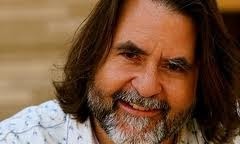
In addition to being one of my favorite bloggers, Richard Beck is Professor and Department Chair of Psychology at Abilene Christian University. He is the author of Unclean: Meditations on Purity, Hospitality, and Mortality and The Authenticity of Faith: The Varieties and Illusions of Religious Experience . Richard is married to Jana and they have two sons, Brenden and Aidan. He blogs at Experimental Theology.
First, I'd like to bring up the issue of Internet pornography and its relationship to masturbation. With the rise of Internet porn, the consumption of pornography has reached unprecedented levels. And it's difficult, to say the least, to reconcile that consumption and the support it gives to the adult entertainment industry with the Christian commitments of justice and love. To be sure, many will battle with pornography all their lives, like an alcoholic fights daily for sobriety. There must be grace for our failures, but this is a battle that must be fought.
And beyond issues related to justice, psychologists are only just beginning to grasp the full impact of pornography upon our brains and how those effects are creating sexual and relational dysfunction. For an introduction to the issues psychologists are beginning to examine see Gary Wilson's widely-viewed TED Talk.
That issue duly noted, let me get to my main points:
I think it is important to recognize how masturbation functions in the life of those who are single. And even for those who eventually get married, we need to note how marriage has become increasingly delayed in Western cultures. A 2011 Pew Report found that the median age of (first) marriages was 29 for men and 27 for women. In the 1960s the median averages for both genders was in the early 20s, and in ancient cultures we married as teenagers. Given this delay, how are we to manage our sex drive from the onset of puberty to wedding night? To say nothing of the sexual challenges involved in lifelong singleness.
All that to say, masturbation may be a vital aspect in how single persons cultivate and achieve sexual chastity. That is, masturbation may be a critical part in how a single person achieves emotional and sexual well-being if they hold to an ideal that sexual relations should only take place within a covenanted, life-long, monogamous relationship.
In short, I don't think the physical act of masturbation should be moralized. The real issue in this conversation, the big elephant in the room, is Jesus' prohibition against lust (cf. Matt. 5.27-28). Masturbation per se might not be a sin but what about the attendant lust? Can you masturbate to the point of orgasm without lust being a part of that experience?
And yet, I think this observation shifts the topic away from masturbation toward a theology of lust. What does it mean to lust? Should transitory erotic feelings be considered lust? Or is lust something more obsessive, persistent, greedy, covetous, acquisitive, and possessive in nature?
Because if transient erotic feelings are not lust then let me make a somewhat counterintuitive point: masturbation might be a great tool to combat lust.
Sexual arousal can be come psychically consuming, and debilitating, if not given a quick physiological outlet. We've all experienced this. When sexually aroused, it's hard to concentrate on anything else. Our mind is fixated on the object of arousal. And trying to repress these feelings often exacerbates them. How, then, to get past these feelings and impulses? Physiological release can help here. Masturbate, clear your head, and move on with your day. When masturbation is treated in this almost perfunctory manner, as a physiological catharsis, it can be a very healthy means of quickly ridding yourself of unwanted sexual feelings and distractions.
To be sure, if masturbation isn't being used in this perfunctory manner and is being accompanied by regular and possessive fantasies toward someone who isn't, say, your spouse, then more might need to be said, (along with what I said above about pornography). But again, the issue then is less with masturbation than lust and how that lust might be symptomatic of relational issues that need attention.
Dianna Anderson
Dianna Anderson is the author of the forthcoming book, DAMAGED GOODS, out in Spring 2015 from Jericho Books. When she is not writing, she is on the lookout for a new day job. She resides in the Chicago area. Find her on her blog or on Twitter.
Is masturbation an acceptable component to healthy sexuality?
Short answer: Yes. Long answer: Yes, absolutely. In fact, I might scratch "acceptable" from there and change it to "important."
I think, when thinking about this question, the first thing we need to do is separate masturbation from pornography. Masturbation is not de facto coupled with pornography, and therefore is not in itself problematic. A lot of Christians leap quickly from one to the other, and it's important to make a distinction. Pornography is a completely separate beast of a question.
Like sex itself, masturbation is sinful only insofar as you use it sinfully. And what counts as "sinfully" for one person may not be sinful for others. This, most of all, requires knowing and understanding yourself and what your limits are. If you don't feel comfortable masturbating because you feel like it takes you to a bad place where you objectify other people, then don't do it. We make mistakes in christendom when we assume that masturbation is problematic for some, so no one, ever, should do this private thing. That's a problem, because my lines about what is sinful are not your lines, and making you conform to my lines in something as intensely complicated as sexuality won't end well.
As far as it being a component of healthy sexuality, it can be a helpful tool for understanding yourself and what feels right and what doesn't before you ever enter into a sexual relationship. It can also make you more comfortable and more confident with your own body so that you are more comfortable when the time comes with a partner. Masturbation can be an important component of a healthy sexuality and can be an important part of a healthy sex life (if you're comfortable taking care of yourself, there's less pressure when you're with a partner). It can be misused and abused, like any good thing, certainly, but it can also be a great boon to understanding and becoming comfortable with yourself as well.
Matthew Lee Anderson
Matthew Lee Anderson is the author of Earthen Vessels: Why our Bodies Matter to our Faith and The End of our Exploring: A Book about Questioning and the Confidence of Faith. He blogs at Mere Orthodoxy.
If our ethic is to be Christian, then it must be qualified by the cross and resurrection of Jesus. That is to say, the pattern for our lives and actions must be shaped by a love that treats pleasure as the (sometimes delayed) fruit of our sacrificial self-giving for others, rather than a good without qualification.
If we disconnect the experience of sexual pleasure from the moment of giving ourselves for another, to another in love, we fundamentally distort the meaning of the human body in its sexual dimension. In the auto-eroticism of masturbation, we pursue a particular sort of satisfaction or a particular experience of pleasure. But it is through the mutual self-giving in love that our humanity is established (whether in sex or beyond), rather than the abstract experience of pleasure or the fulfillment of a craving or felt need. However enjoyable it might be, masturbation fails to fulfill this form of human sexuality, and as such is corrosive to the integrity of our persons and our intimacy of the Spirit.
Jenell Williams Paris
Jenell Williams Paris is a professor of anthropology at Messiah College in Grantham, PA, and the author of The End of Sexual Identity: Why Sex Is Too Important to Define Who We Are.
Christians often talk about the morality of masturbation as if, were it to be definitively deemed immoral, people would stop doing it. It seems to me that a better question is, “Given that most people masturbate, how can we see even this area of life in the light of faith?”
Social science research finds that most people masturbate, including both adolescents and adults, men and women (higher proportions of men than women), and those who are single, married, or partnered. Some people don’t do it at all, for a variety of reasons including faith conviction or partner expectations. Masturbation can be compulsive, but it isn’t necessarily. It doesn’t typically replace face-to-face relationships, but for younger people today, males especially, easy and constant access to pornography distorts their drive for, and their behavior in, relationships with women.
Masturbation is very much like all other dimensions of human sexuality, which is very much like spirituality. There is gift, beauty, understanding, and pleasure, but also mystery and not-knowing; we live with incomplete understanding of ourselves, our intimate partners, and the sacred. There is also temptation, darkness, and sin. In masturbation, marriage or intimate partnership, and in the spiritual life in general, we encounter confusing, disturbing, and unwanted impulses, fantasies, and behaviors.
Christianity is often reduced to a moral system that encourages (or harangues) people toward being good instead of bad. But like life in general, sex seems to defy our attempts to be good; in both masturbation and in sexual partnership, unruly, wild, and unpredictable parts of ourselves often emerge. If cared for, acknowledged, and brought into the light, the wildness of sex still doesn’t submit to domestication, but it can offer practice in humility, humor, and groundedness. When we ignore it, trying to be more angel than human, what is repressed often returns in distorted and harmful forms.
We were created human, not angels, and nothing highlights that more insistently than sexuality. Learning to handle, acknowledge, and discuss sexuality – including masturbation – with appropriate boundaries and in trusted circles, is part of the journey toward authentic personhood. Perhaps it even relates to something Jesus said, “Come to me, all you who are weary and burdened, and I will give you rest. Take my yoke upon you and learn from me, for I am gentle and humble in heart, and you will find rest for your souls. For my yoke is easy and my burden is light” (Mt 11:28-30).
It’s no surprise that our best efforts to be good make us feel weary and burdened. We settle for moral judgment, shame, and silence, when the ease, the lightness, and the gentleness of our Savior is right there for us.
Tara Owens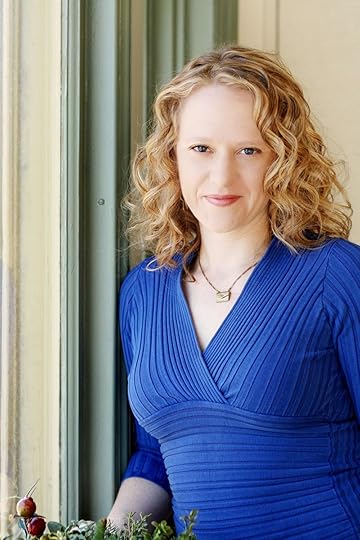
Tara Owens, CSD, is a spiritual director, speaker
and author with Anam Cara Ministries. She teaches on the topic of
spirituality and sexuality in seminaries and spiritual direction training
programs throughout North America. She has a book on spirituality and the body
coming out with InterVarsity Press in 2014. You can connect with her on Twitter or
Facebook.
The
term healthy sexuality presupposes
that we have a good idea of what our sexuality is and does, and I would argue
that, for the most part, both our culture and the Church have fairly disordered
models of what sexuality is supposed to look like. Part of the reason we
struggle with the question of masturbation is because we have trouble living in
the tension of our desires. It’s easier (and I find the tendency in myself
almost every day) to fall back onto the black and white rules that we’re often
offered as answer to our struggles instead of doing the hard work of
encountering our own desires and longings in relationship with God and others.
For the most part, we’ve been given two sets of unhelpful “rules” for what we
should do with our sexuality: (1) respond to our sexuality as an appetite, like
hunger, and feed appropriately or (2) avoid or subjugate our sexuality as
something to be expressed only in covenanted conjugal relationship and ignored
or sublimated at all other times. This is a false dichotomy, and both of these
paradigms tend to end up in dysfunction. We either find ourselves at the mercy
of our “needs” which leads to a low grade despair, or divorced from the life
and pleasure that sexuality brings, living in a kind of discontented numbness.
Like
many of the questions surrounding sexuality, I don’t think we can find simple
answers—or any answers that hold together in real life situations—outside of
the context of relationship. For me, sexuality is broader than mere genital
expression (intercourse, foreplay, masturbation, etc.), and encompasses all of
the embodied ways that we desire connection with the world, with one another,
and with God—as well as all of the ways we go about expressing that desire.
While that definition can be taken to extremes, taking a broader view of
sexuality allows us to see the ways that sexuality impels us to connection with
one another. Taken in this context, masturbation and whether or not it is a healthy
expression of sexuality for a particular individual become questions of whether
or not the acts of masturbation at a particular season of life are drawing you
deeper into isolation from others and from God, or into deeper connection and
intimacy.
How
does this play out? The answer will be different for different people in
different contexts—but the principles underlying those answers will be the
same. A single woman in her 20s who is discovering her body and her desires
might be approaching masturbation as a celebration of sexuality and the gift of
her body and desires; she could equally begin using masturbation as a place to
take her sorrows, longings, and insecurities. In the former, masturbation can
be a healthy expression of sexuality if kept squarely in the context of a relationship which, in her case, is with God, with her future mate, and with
herself. In the latter, masturbation quickly becomes a place to go to hide from
others and God, a place that, like any appetite-fulfilling activity, can quickly
lead to addiction. Ultimately, the question of whether or not masturbation is
healthy for a particular person springs from the question that governs all good
discernment: Does this action help me love myself and others more fully and
freely, and does it allow me to love God more deeply and with more of myself?
If
you take this question as your baseline for the question of masturbation, a
husband who chooses masturbation for a season while he and his wife parent
young children can be seen as freeing and loving—a choice appropriate to
healthy sexuality—as masturbation can take the sexual pressure off of the
relationship and lead to greater intimacy (as long as the decision is discussed
and not made unilaterally). On the other side of that situation, masturbation
chosen out of frustration and expediency would push him further away from his
spouse, compounding relational tension and making loving each other and God a
further hill to climb in an already exhausted and exhausting situation.
I
know “yes” or “no” would be easier answers to this question, but I don’t
believe that our sexuality was created by God simply to be treated
mechanistically. I believe sexuality is a gift and a grace that is given to us
by God, and it can produce some of the most radically beautiful and loving acts
as well as some of the most horrible and hateful. As the first line of the
Didache says, “There are two
ways, one of life and one of death, and there is a great difference between
these two ways.”
###
So, is masturbation an acceptable component to healthy sexuality for Christians? How would you answer that question?
I look forward to reading your responses, and plan to share the most popular comment in a post next week!



June 2, 2013
Sunday Superlatives 6/2/13 (and a shout-out to my family)

IRL….
Eshet Chayil – Woman of valor! My grandmother recently reached her 90th birthday and we celebrated last week with family and friends in beautiful Boone, North Carolina. Pictured above, left to right: Rachel, Robin Held (Mom), Madge Greiner (Grandma), Amanda Held Opelt (Sister).
Grandma, who taught elementary school for more than 30 years, is as smart and witty as ever, able to charm even the coolest mechanic, sales clerk, or total stranger into laughing along with one of her stories. After she read A Year of Biblical Womanhood, Grandma called me up to tell me about a time when she was demoted from an administrative position at a Christian school because the new pastor of the associated church believed women should be forbidden from leading in any capacity. I’ve always admired her tenacity in the face of challenge. Her mother (also a schoolteacher) was the first woman in her small Appalachian town to drive a car. I come from a long line of women of valor, and am so grateful for that!
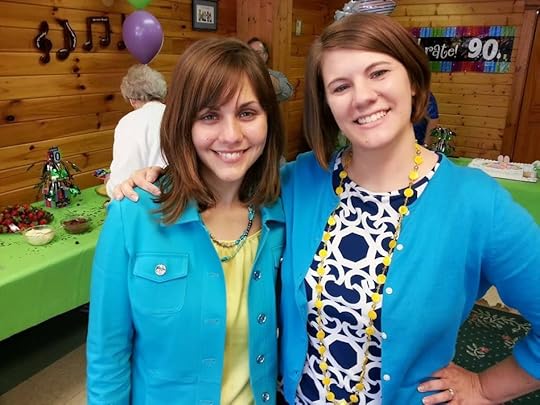
We match and Mom didn't even plan it that way.
Another highlight of the week was spending time with my parents and my amazing sister, Amanda, who also celebrated a birthday last week. I was coming off an especially difficult week online and Amanda spent a good two hours talking through it with me, helping me see things more clearly. It’s hard to describe what a special person she is. What I admire most about her is how she fully inhabits whatever community she finds herself in, embodying neighborly love like no one else I know. Whether it’s her elderly neighbor down the street for whom she does laundry and household chores, or the Indian families from Hyderabad and Chennai she has stayed in touch with and visited since her first mission trip there in college, or the church community with which she is connected there in Boone, Amanda doesn’t simply “serve”; she befriends and loves. A reporter asked me this week to provide a tangible example of what it looks like to be “Jesus in tennis shoes” (a reference to Evolving in Monkey Town), I told him about Amanda.
Also coming up is my parents’ 40th wedding anniversary! I’ll share more about Team Peter & Robin later this month.
Okay, on to superlatives!
Around the Web….Funniest:
Pinterest, You Are Drunk with “When your DIY starts with ‘saw through a grand piano…’”
Wisest:
Emily Freeman with “Why You Need to Tell Someone How Scared You Are”
“Sometimes it’s good to let them see you sweat even when it feels awkward. Fear seems to grow in the darkness of isolation. But when you expose it in the light of community, it tends to lose power. Sharing my fear is often the path that leads to courage.”
Handiest:
Martin Luther Insult Generator
Bravest:
Aaron J. Smith (Cultural Savage) with “When It’s Not Enough”
“Hear this very carefully: you are not the missing piece to my happiness. I don’t expect you to magically snap me out of my depression and set me back into real life. I don’t expect you to know what to say or what to do. I don’t expect you to even want to be around me when I am in the middle of these hard days. But I need you… I need you because I have no other way to know Jesus. My faith is enough in these times of depression, but I still need Jesus. When I can’t find him, when I can’t feel him, when I can’t have faith in him, can you embody him and just be near?”
Coolest:
Nicki Bluhm and the Gramblers: Van Sessions (Just discovered this!)
Most Prophetic:
Micha Boyett with “The Pursuit of Enough When Sadness Lives on the Doorstep of Happiness”
“I love the kindness of this idea. I love that Jesus’ words are, Happy are the sad people. Maybe the sad people are the healers and the prophets. Maybe the sad people have been given a gift to see the world as it really is. And when we see the world, when we see ourselves as we actually are, we understand how desperately we need God to come and bring healing. We don’t have to pretend anymore. We get to need God.”
Most Helpful:
NT Wright with “How Can the Bible Be Authoritative?”
"There is, indeed, an evangelical assumption, common in some circles, that evangelicals do not have any tradition. We simply open the scripture, read what it says, and take it as applying to ourselves: there the matter ends, and we do not have any ‘tradition’. This is rather like the frequent Anglican assumption (being an Anglican myself I rather cherish this) that Anglicans have no doctrine peculiar to themselves: it is merely that if something is true the Church of England believes it. This, though not itself a refutation of the claim not to have any ‘tradition’, is for the moment sufficient indication of the inherent unlikeliness of the claim’s truth, and I am confident that most people, facing the question explicitly, will not wish that the claim be pressed. But I still find two things to be the case, both of which give me some cause for concern. First, there is an implied, and quite unwarranted, positivism: we imagine that we are ‘reading the text, straight’, and that if somebody disagrees with us it must be because they, unlike we ourselves, are secretly using ‘presuppositions’ of this or that sort. This is simply naïve, and actually astonishingly arrogant and dangerous. It fuels the second point, which is that evangelicals often use the phrase ‘authority of scripture’ when they mean the authority of evangelical, or Protestant, theology, since the assumption is made that we (evangelicals, or Protestants) are the ones who know and believe what the Bible is saying. And, though there is more than a grain of truth in such claims, they are by no means the whole truth, and to imagine that they are is to move from theology to ideology. If we are not careful, the phrase ‘authority of scripture’ can, by such routes, come to mean simply ‘the authority of evangelical tradition, as opposed to Catholic or rationalist ones.’"
Related (this is where I found the quote!):
Kristen Rosser with “You’re Not Arguing With Us But With God”
“When religion, God or the Bible are used to uphold a person or movement's real or perceived authority in ways that control or coerce, bringing shame, harm or misery to those perceived to be under that authority, this is spiritual abuse.”
Most Thoughtful (nominated by Ben Howard)
Joseph Randall at Christena Cleveland’s blog with “Idolizing Diversity”
“We idolize diversity when we place higher value on the perception of diversity than on actual diversity."
Most Inspiring (nominated by Michele Grooters):
Jordyn Osburn with “I have stretch marks”
“Is it possible that the beautiful, spotless bride of Christ looks like a body that has lived? A body with wrinkles and scars and calluses? A body that has loved beyond herself in a way that stopped caring about what she thought was perfection and fixed her gaze on the one and only Perfect One? A body even willing to groan and bleed for love the way her Maker and Savior did? I think it’s possible. I think I want to be that kind of bride."
Most (Surprisingly) Moving (nominated by Emily):
“Luiz Antonio: Why He Doesn't Want to Eat Octopus”
Most Heartbreaking:
Becca Rose with “The Only Thing My Double Ds Ever Got Me Was Kicked Out of Church”
“It's really no surprise that I have come to believe that my body is a shameful thing, meant to be hidden, covered up, backed into corners. It's no shocker that my conditioned response to men, young and old, openly ogling my body, is to internalize that shame, blame myself, and remain silent. It's not a surprise to me, either, that thousands of women brought up in the paradox of strict evangelical modesty/purity culture and the hyper-sexualization of American culture have developed such an unhealthy relationship with their bodies. Whenever I hear of someone else admitting that they've struggled with an eating disorder or self-harm, I don't think How awful! I think how normal.”
[For another perspective on this, check out Sharideth Smith's post at Rage Against the Minivan, "But there is glitter on your boobs! The flip side of modesty culture"]
Most Whimsical (via Ann Voskamp)
“Surreal Self Portraits of 14-Year-Old”
Most Aweseomely Sarah Besseyesque (and yes, I can make that category because I am the boss of this blog)
Sarah Bessey with “In which I know, I’m sorry, and I hope I was kind”
“I will gather up all these disparate seasons and thoughts and opinions and experiences, and hold them all in my hands with gratitude.”
Most Informative:
Scot McKnight with “How We Got Our New Testament”
“The first written books now in the NT were the letters of Paul. He wrote before the Gospels were written. Paul has 13 letters to his name in the NT. But 1 and 2 Cor (2:3-4) make it clear that Paul wrote others, but the 13 are the only ones that survived in the churches as authoritative letters. Paul’s letters are shaped for a particular context at a particular time, and his letters are interactive communications between him and his churches (and other leaders too).”
(Looking forward to the next post on this topic. Also, the conversation in the comment section is well worth a read.)
Most Poetic:
Esther Inglis-Arkell with “Butterflies Remember a Mountain That Hasn’t Existed For Millennia”
“We think of mountains as structures that are, nearly, ageless. They stand while successive generations of animals change and evolve around them. Perhaps not this time, though. This time, butterflies kept up their same pattern while the world changed under them, the mountain wearing away, or being destroyed. This time, flesh outlasted stone.”
Most Relatable:
Micah J. Murray with “The Day I Stopped Believing in God”
“We believe that every life is precious. That God knits us together in the womb. And yet, He randomly predestines most to eternal destruction? But why? Why doesn’t He stop creating people that He knows He won’t predestine to salvation? The answer was probably something about His ways being higher than our ways. Maybe something about God getting glory from both the people who go to heaven and the people that go to hell. But how can I enjoy my salvation, knowing that it’s just the luck of the draw? That I won a divine lottery to keep me out of hell, but that most won’t? How is salvation good if it’s unmerited, arbitrary, random, and most are predestined to destruction?"
[If you’ve read Evolving in Monkey Town, you know these are the very questions I struggled with when I first began asking tough questions about my faith.]
Most Likely to Bring a Tear to Your Eye:
Patrick Stewart responds to a question on abuse
Most Likely to Go Viral (It did!)
Jen Hatmaker with "Worst End-Of-School-Year Mom Ever"
"The emails coming in for All Of The Things – class gift, end of year letters, luncheon signup, party supplies, awards ceremonies, pictures for the slide shows, final projects – are like a tsunami of doom. They are endless. I mean, they will never ever end. There is no end of it. I will never finish and turn it all in and get it to the (correct) Room Mom and get it all emailed and I am pretty sure the final week of school will never be over and this is the end for me."
Most Thought-Provoking (nominated by Ken Haynes)
Greg Newton with “Beyond Either/Or”
“Unfortunately, dualism is too commonly the paradigm employed by many as an adequate model for reality. Everyone is either saved or lost. Christian or not Christian. A believer or unbeliever. Clear dualistic categories leading to simple judgments. After all, you’ll either go to heaven or hell, right? That is a useful tension to consider, but also remember that the gates of Hell cannot resist the in-breaking of God’s Kingdom. Perhaps Heaven is invading Hell; busting down the locked gates and setting prisoners free. In this mode of thinking, we may find ourselves in Hell with Heaven in our midst all at the same time. Is Heaven and Hell a future state or present reality? Dualism.”
Most Observant:
Thad Norvell at G.R.A.C.E. with "Depreciating Humility: The importance of being the best at being right"
"The cycle goes like this: The urgency of the cause reinforces the importance of being right, which further fuels the notion that the most important people in the cause are those most skilled at being right in front of the most people. And if that is true, then those people must be protected and kept on stage at almost any cost. Question them without an air-tight case of disqualifying sin, and you risk being sacrificed for the greater cause. It’s all very logical. And it’s very common. It just isn’t biblical."
Favorite Tweet:
I stand like a lonely pine, egoistically shut off, pointing to the skies & casting no shadow. It was easy to achieve this sleek & sexy look.
— KimKierkegaardashian (@KimKierkegaard) May 29, 2013
Favorite New Blog:
The Matter with Megan
Check out “Please Don’t Pray With Me (In Airports)”
“Though Individually uncomfortable and at times, even amusing, these incidents collectively have left scars on me as real as the ones on my body. Rather than heal me as they intended (and you know the old maxim about good intentions), they helped break my self-esteem. They brought forth questions I’ve sought to stifle, questions that repeat in my head with sadistic rhythm when I’m out in public. Do I really seem that broken to people when I walk out the door? Does my body project a fate seem so grim that I actually need saving? Every once in a while I have to actively remind myself that what happened to me was an objective case of a genetic splicing error-not the Devil’s handiwork.”
Best Challenge:
Laura Ortberg Turner at Her.Meneutics with “Too Girly to Lead?”
“Paul concludes his letter to the Romans by commending a number of people to the church at Rome, including Phoebe, Priscilla, Mary, Junia, and "Tryphena and Tryphosa, those women who work hard in the Lord." Paul wasn't thanking them for their delicious potato salad at the church potluck—important though that is. He wrote to publicly recognize these women whose contributions had done nothing less than help to establish the Christian church.”
Best Series:
Jen Hatmaker with Examining Adoption Ethics: Part 1, Part 2, Part 3
“We have to dig deep and reject the notion that Americans know best, are best, are better. We have to listen to dissenting voices and carefully assess, prioritizing first families, first cultures, first countries whenever possible. We move forward as if our goal was no orphans ever, setting aside our agendas, however altruistic. Our standard operating procedure must always include Being Good News: good for children, good for birth mamas, good for the poor, good for other countries and cultures.”
I just want to pause for a moment and applaud Jen for the tenacity, grace, passion, and wisdom she brought to this series. It was practical, challenging, and well-researched. I am so grateful for this woman of valor!
Best Storytelling:
John D. Sutter at CNN with “Walking the path of the tornado”
“At the end of Pendergraft Lane, I met the Eubanks family's horses, Denali and Mikey, who didn't seem to have a care in the world; saw a few downed tree limbs; splashed in a puddle or two, left from the rain. The most memorable scene, however, was that of Leacie Pratt, 8, swinging on a broken play set. Its wooden pieces were intact but had been twisted, as if its joints were melted. The swing set creaked and flexed and swayed beneath the weight of the tiny girl in purple sneakers. She kept on swinging just the same.”
Best Point:
Sean Palmer with “It’s Not the Bible’s Fault. You Just Might be a Bad Dad”
“As long as the narrative continues which articulates that men lack what it takes to nurture and raise children, as long as some argue that the cultivation of children is the domain of women only, we will continue to produce dads who believe they risk their ‘man-card’ by trying... Loving parents – male and female – nurture because that’s what loving parents do. There is no “nurture gene.” Mom’s staying home, rather than dad, is a lifestyle choice. If you’re incompetent in caring for your children, please don’t drag my entire gender along with you.”
Best Wedding Party Photo of All Time:
Quinn Miller with this gem
Best Sermon:
Nadia Bolz Weber with “On Why Hope And Vapid Optimism Are Not the Same Thing”
“The Easter hope we have, brothers and sisters, the hope that never disappoints has nothing to do with optimism or the avoidance of suffering, is a hope that can only come from a God who has experienced birth, and love and friendship and lepers and prostitutes and betrayal and suffering and death and burial and a decent into hell itself. Only a God who has born suffering himself can bring us any real hope of resurrection. And if ever given the choice of optimism or resurrection I’d go with resurrection any day of the week. This is the God of whom Paul speaks. And the Christian faith is one that does not pretend things aren’t bad. This is a faith that does not offer platitudes to those who lost children this week to suicide or a tornado. This is not a faith that produces optimism it is a faith that produces a defiant hope that God is still writing the story and that despite darkness a light shines and that God can redeem our crap and the beauty matters and that despite every disappointing thing we have ever done or that we have ever endured, that there is no hell from which resurrection is impossible. The Christian faith is one that kicks at the darkness until it bleeds daylight.”
Best Conversation-Starter:
Zack Hunt with "The Bible Isn't Perfect and It Says So Itself"
"Because scripture is also “God-breathed” it means it too isn’t God. Nor does it even come directly from God, but instead it passes through an intermediary. In the beginning, the intermediary between us and God was dirt. God breathed into it and the result was that we were created. In the case of the Bible, God breathed His truth into the hearts and minds of people and the result was that the Bible was created. But like that ancient dirt that gave birth to us, the people who wrote the Bible, God’s intermediaries, weren’t perfect. Which is why Paul says “For now we see in a mirror dimly, but then face to face; now I know in part, but then I will know fully just as I also have been fully known.”
Best Imagery:
Tedd Cadd at Mary DeMuth’s blog with “There is a Crack in Everything”
“If I patch up my cracks and you patch yours, we will never find each other. We remain in darkness.”
Best Photo Series:
Huffington Post with “125 Amazing Animal Photobombs”
Best List:
Leigha Cann with “Thirty Things I Want the Church to Know About Christian Feminism”
“Feminism is not out-dated. It is needed. Desperately.”
Best Advice:
Shauna Niequist with "Change the Story"
"And because I’ve believed those things about myself for so long, I sometimes don’t expect myself to be anything other than a punchline. I don’t push myself the way I could. I don’t ask for opportunities or promote my work. Essentially, I don’t take myself and my life as seriously as I could."
And finally, this video reminds me of what Dan does for me, pretty much on a daily basis:
"Hero turtle rescues upside down turtle"
Most Popular Post:
"I Don't Write for an Audience of One"
Most Popular Comment:
In response to the above post, G.D. Sandeen wrote:
"It always seemed so clichè and an attempt to sound overly spiritual. I was encouraged to sing for an audience of one during worship on Sundays once. I asked her to account for the other two people of the Trinity. She wasn't amused."
###
So what caught your eye online this week? What's happening on your blog?



May 31, 2013
Rachel’s HEAVY summer reading list
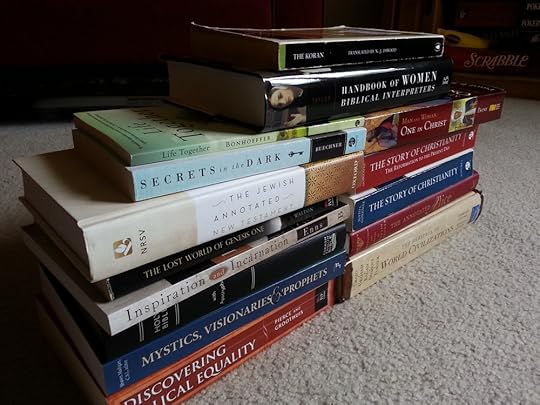
I have no concept of “light” summer reading.
Summer is when you march yourself down to the local library, come out with more books than you can carry, and then beat the pants off all the other kids enrolled in the summer reading program by downing every Ramona book within a 50 mile radius like so many shots of vodka.
Or, if you are older than twelve, summer is the time you bring The Complete Works of Shakespeare with you to beach, take a fat biblical commentary to the pool, or stay up late pouring over the contents of a used American history book, just to brush up on that stuff you learned in college.
If you ask me, light reading is for the month of January when you need just one thing in your life to be easy and distracting. Summer—with all its extra light and time—is when the reading professionals emerge; it’s when things get serious.
So, with that in mind, here are my suggestions for some HEAVY summer reading this year. These are some of my favorite books for research, contemplation, and education:
The Story of Christianity Volumes 1 and 2 by Justo L. Gonzalez: My big summer reading project this year is to learn more about church history. As I shared last week, it’s been an enlightening process! I love Gonzalez’s writing style and can heartily recommend his work as a primer on the topic. I’m planning to pair his books with Ruth Tucker and Walter Liefield’s Daughters of the Church, which several of you recommended as a good companion to Gonzalez’s work.
The Jewish Annotated New Testament, edited by Amy-Jill Levine and Marc Zvi Brettler: This New Testament is packed with annotations and essays from New Testament experts, Greco-Roman historians, and theologians committed to helping readers better understand the Jewish content of the New Testament. It can be a bit overwhelming to start from the beginning with the intention of reading all the way through, so I recommend just replacing your regular New Testament with this one for a while to enrich your regular reading or devotional time.
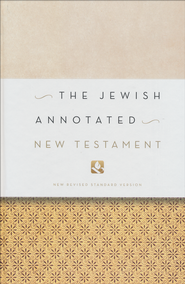
The Lost World of Genesis One by John Walton: I am often asked if I have any book recommendations for folks struggling to reconcile evolution and the Bible. I always start with The Lost World of Genesis One by John Walton. This slim, readable book actually doesn’t deal directly with evolution at all; instead, it examines the genre and context of the creation narrative of Genesis 1 in light of the ancient Near Eastern culture from which it emerged. If you love the Bible, you owe it to yourself to pick up this book at some point. Walton will only increase that love as you learn to embrace the Bible on its own terms, rather than those we tend to impose upon it. Additional recommendations for this topic include Peter Enns’ Inspiration and Incarnation and The Evolution of Adam.
Discovering Biblical Equality, edited by Ronald W. Pierce and Rebecca Merrill Groothuis: If you want to take your understanding of the biblical support for Christian egalitarianism to a new level, this is the book for you. This comprehensive yet readable volume proved to be an invaluable resource when I wrote our series on mutuality and while I worked on A Year of Biblical Womanhood. And I hated how much research I had to leave out of both! This book focuses on gender relationships that exhibit “complementarity without hierarchy” and tackles everything from the Greco Roman Household Codes, to the creation narratives, to Pauls’ instructions to the Ephesian church regarding women, to misconceptions and stereotypes about gender roles and feminism. You don’t have to agree with 100% of the material to be challenged and changed by it. I highly recommend this book for those looking to dig deeper. (Once you finish it, you may want to check out Man and Woman, One in Christ by Philip Payne.)
The Koran: Another interesting summer reading project—one which I have yet to undertake—is to pick the religious text of another faith and read through it, perhaps with commentaries. It frustrates me when Christians act like they are experts on Islam, only to later confess they haven’t read a word of the Koran. Other options include the Bhagavad Gita, Teachings of the Buddha, or, if you plan to spend your summer on a deserted island, The Talmud. (Anyone have any introductory commentaries they would recommend for The Koran?)
Handbook of Women Biblical Interpreters, edited by Marion Ann Taylor and Agnes Choi: This one will impress people at the pool, let me tell you. Arranged alphabetically, it explores the often-overlooked contributions of women interpreters of the Bible, drawing from the entire history of Christianity. But you don’t have to bee interested in biblical interpretation specifically to enjoy reading through all of these fascinating women’s biographies—from Saint Birgitta of Sweden to Catherine Mumford Booth to Anne Bradstreet to Catherine of Siena to Sojourner Truth.
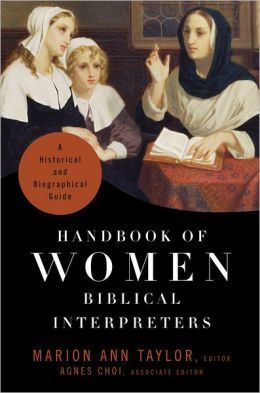
Life Together by Dietrich Bonhoeffer: Summer’s also a good time to catch up on some of those classic works you just never got around to reading. I’m hoping to get through Life Together on our vacation this year, as well as St. Benedict’s Rule. I’m also just now discovering Frederick Buechner and am wondering where he has been all my life! I highly recommend Secrets in the Dark if you too want to get started on this amazing writer and man of faith. Two other books I always read before starting a new book or major writing project include Walking on Water by Madeleine L'Engle and Bird by Bird by Anne Lamott.
The Bible: Kind of a no-brainer, I know. If you’re looking to make things interesting, consider reading from a different translation. I’ve been reading from the Common English Bible, and am attempting to read the Apocrypha for the first time ever.
The Annotated Alice:
Mostly I just want to show off that I own this totally awesome volume. Makes an amazing gift and is fun to keep on the coffee table for conversation.
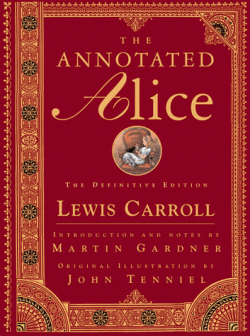
Mystics, Visionaries & Prophets, edited by Shawn Madigan: My friend Tony Jones gave me this book and I’ve been eating it up, a little at a time. This anthology includes lengthy excerpts from the spiritual writings of notable women in church history—from Perpetua to Mother Teresa to Edwina Gateley. What I love most about this book is that the editor goes out of the way to include the voices of women outside the Western tradition. This is a nice change of pace from what you usually find in historical anthologies like these. Makes a nice companion to Gonzalez’s church history books!
The Heritage of World Civilizations: I picked up the seventh edition of this college textbook for $4 at a used bookstore because I liked the pictures and because it was stressing me out that I was losing to my little sister in the history category of JEOPARDY. Like, I couldn’t remember when Alexander the Great lived or where Marco Polo was from. Sometimes you just need to brush up. I love rediscovering all these stories, and this volume has been fun because it does a good job of explaining what was happening across multiple civilizations during the same time period. It’s obviously not something you just sit down and read through, but it’s fun to have in hand for a lazy, rainy summer night when you find yourself wondering who came first—Plato or Aristotle.
###
So, what’s on your summer reading list? (It can be light or heavy; no judgment here!)



May 30, 2013
Ask me anything! (And a few programming notes)

Well, I just wrapped up my last speaking gig of the summer, which means I’ve got three whole months of freedom to work on the blog, start on a new book, and clean out the bedroom closet.
Several of my writing buddies have talked me into doing a bit more vlogging—maybe not as often as once a week, but at least a couple times a month. Since I have purposefully left my summer free of travel, I thought it would be fun to bring the Q&A sessions I enjoy doing on the road right here to the blog by inviting you to submit any questions you might have for me via the comment section. I can respond to my favorites throughout the summer, through both video blogs and regular posts. This will give me an idea of what you want to talk about and help shape future content on the blog.
So, if you have a question or comment, leave it in the comment section. As with our “Ask a…” series, it helps if you “like” your favorite questions, so we know what is of most interest to our readers. Don’t worry if it takes a while for me to get to your question; I'll be working through them all summer.
I'll also be turning the tables on you a few times this summer, posing some of my big theological questions to you for your input and ideas. (Time to take advantage of all you smart people and figure out the Trinity once and for all!)
By way of a programming note, I’m hoping to jump right back into our Sexuality & The Church series with a roundtable discussion on the topic of masturbation either this Monday or next Monday. We will be moving away from our conversations on homosexuality for a while to discuss sexuality more generally, but will perhaps revisit the topic again later in the year with some additional book discussions. In the meantime, we’ll be looking at Sexuality and Holy Longing by Lisa Graham McMinn, The Purity Myth by Jessica Valenti, and See Me Naked by Amy Frykholm.
The next series to appear on the blog, Lord willing, will be a 3-5 post series on the Greco-Roman Household Codes of the New Testament, a topic I get irrationally excited about. Similar to our Mutuality Series, it will explore the concept of “submission” in the New Testament, particularly as it relates to men and women.
So that’s the plan. It’s obviously subject to change.
Now feel free to ask me anything (well, almost anything)!
As always, thanks so much for your faithful readership. It means a lot.



May 29, 2013
I don’t write for an audience of One
At a conference for creatives not too long ago, I was asked
by a college student if I write for myself, for others, or for God.
“All of the above,” I said. “I write for myself because I’ve
loved the craft since I was a kid, because it’s how I process the world and
make sense of things, and because I kinda suck at everything else so my professional options
are limited. I write for others because
as a human being created in the image of a relational God I long to connect with
and communicate to the people around me and find great joy and meaning in that
process. And I write for God in the sense that I hope my work glorifies God,
delights God, and is a part of my most important calling to love God and my
neighbors well.”
“So you’re saying you don’t write for an audience of One?”
he prodded playfully.
“Well I guess not.”
I’ve had several conversations like these through the years.
Among people of faith who create—who write books, make music, lead worship,
speak, design, perform, blog, etc.—there is this myth that we create/perform
for an audience of One. We create/perform for God alone.
Now, I understand and affirm the sentiment. Obviously, as
Christians we are called to work in such a way that the praise of others does
not bring us too high, nor the discouragement of others bring us too low,
always keeping in mind that what matters most is the integrity with which we do
our work, even when no one is watching.
But I don’t buy the idea that our motivation to create or
perform should rest exclusively in the desire to please God.
God created us to be communicative creatures, relational
creatures. So it is natural—perhaps even holy—to want to be heard, to be
understood, to feel less alone. God created us to connect with one another over
good food, good art, good music, good company. God created us to delight in
these things and the people who nurture them in the world.
I love the feeling of looking out into an audience to whom I
am speaking to see a man with tears streaming down his face, nodding in
recognition. I love getting an email from a woman who, because of something I
wrote, decided that maybe it wasn’t a waste of time to go to seminary after
all. I love writing a blog post only to discover the real jewels in the comment
section, among your thoughts and ideas, critiques and questions. I love hugging
person after person in the book signing line, as we say to one another over and
over and over again, so we never forget: “Me too. Me too. Me too.”
It is this connection to our fellow human beings that we
long for most when we communicate. And so it is perfectly natural to feel joy
when that connection happens, discouragement when it doesn’t, and frustration
and elation and doubt along the way.
I’ve known many bloggers who approach me with questions
about how to generate more readers only to follow up with a hasty, “Not that it
matters if anyone reads my work.” And I’ve known many worship leaders who
refuse to take a compliment on their mad piano, guitar, or singing skills because
they are afraid of deflecting any praise or appreciation away from God.
I confess I kinda want to shake these people and say: “Don’t
you see! You were made to want others to read your work! Don’t you see! Your
talent DOES bring glory to the God who created you!”
Again, this doesn’t mean we have to have a massive audience
to enjoy our creative work. As Eric
Liddell so beautifully put it, “I believe God made me for a purpose, but he
also made me fast. And when I run I feel his pleasure.” There is joy in
creative expression with or without an audience of other people.
But the desire to share these thoughts and experiences—to be
heard, to be understood, to be recognized, to be affirmed—is not inherently
selfish. It’s good. It’s holy. It’s
challenging. It’s fun.
How easy it is to forget that we are the result of the
collaborative work of a relational Being who in the beginning said, “Let Us
make mankind in our image, in our likeness,” and who looked upon that creation
and called it good.
Even God did not create for an audience of One.



Rachel Held Evans's Blog
- Rachel Held Evans's profile
- 1710 followers



